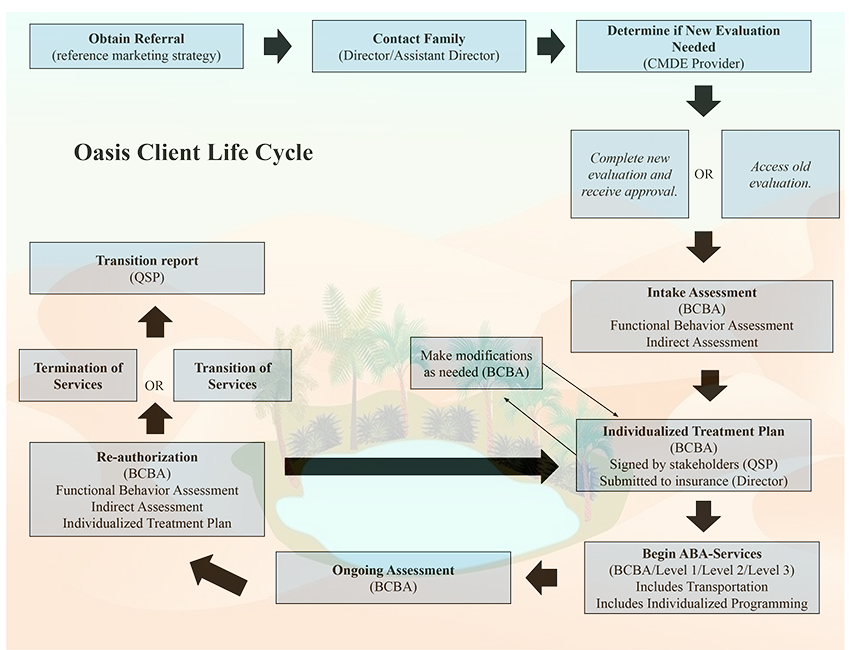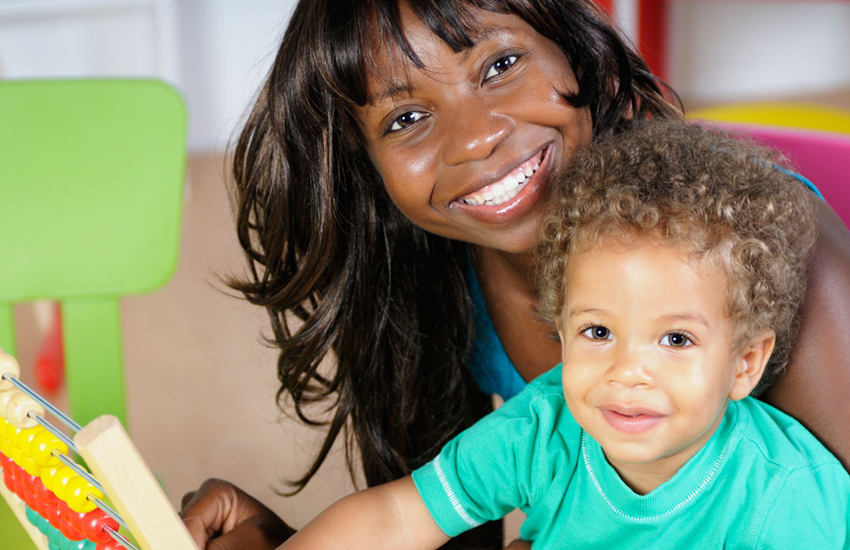A comprehensive diagnostic evaluation. A properly conducted screening will determine if a more thorough evaluation for autism is necessary. It will also help identify or rule out any other problems or conditions that may be present, and serves as the necessary first step toward helping your child receive the appropriate treatment

Assessment Process
If you, the parent, have any concerns about your child’s development, speak to your child’s primary care physician (PCP) and ask specifically whether your child should receive a developmental screening. It is important for a child with autism to be diagnosed as early as possible. Studies have shown that the earlier a child is diagnosed, the sooner a treatment program can be started, and the better the results for the child in the long term. Be suspect of a “wait and see” approach. If your PCP suggests you wait to see how your child progresses and you still have concerns about your child’s development, pursue further evaluation. As a general rule of thumb, PCPs should check your child’s progress against developmental milestones during every “well visit”.
Assessment Process - Screening Tools
Ultimately, health care professionals are looking for a constellation of social, communication, and behavioral developmental differences that are consistent with a diagnosis of autism. The variability that is observed among individuals with autism in combination with an absence of a medical/laboratory test or distinctive physical sign that can be used to identify autism can make diagnosis more difficult. In order to bring more clarity to the diagnostic process, there are specific tests given to rule out other developmental differences and several forms of assessment to definitively diagnose autism and gauge its severity. In general terms, the majority of children with autism receive their diagnosis between the ages of 2 and 3, after parents begin noticing delays or differences in social interaction as well as verbal and non-verbal communication.

Contact Us & Get Started Today!
- Modified Checklist for Autism in Toddlers, Revised with Follow-Up (M-CHAT-R/F) is a brief checklist of yes/no items for early detection among children 16 to 30 months of age.
- Autism Diagnostic Interview – Revised (ADI-R) is a semi-structured interview with the child’s parents used by a trained specialist to help make a definitive diagnosis.
- Autism Diagnostic Observation Schedule – Generic (ADOS-G) is a structured interview with directed activities also used by a trained specialist to help make a definitive diagnosis.
- Childhood Autism Rating Scale (CARS) observes a child’s behavior and uses a 15-point scale to evaluate a child’s relationship to people, body use, adaptation to change, listening response, and verbal communication.
- ThinkAsperger’s is a brief screening tool in a portable mobile app format that aids in the informal detection of autism for parents, teachers, and medical professionals.
Assessment Process Check List

If your child is diagnosed with autism, it is the beginning of a much different journey than what you had planned for you and your family. It is a journey that will require the best of your ability to cope and your resourcefulness to navigate the road ahead. Just as there are sure to be challenges, there will just as surely be moments of hope and accomplishment. The Raising a Child with Autism section that follows provides information that will help you adjust to this difficult diagnosis and offer tips for taking other helpful first steps.
Intervention invariably involves more than one treatment and an intervention team of multiple providers. The American Academy of Child and Adolescent Psychiatry (AACAP) recommends that several types of professionals and services be involved in the care of an individual with autism. This team should be under the direction of one certified and experienced professional who will develop, organize, advocate for, and watch over your child’s specific program. The team may include some or all of the following professionals: Developmental Pediatrician, Child Psychiatrist, Neurologist, Neuropsychologist, Board Certified Behavior Analyst, Child Psychologist, Special or General Education Teacher, Occupational Therapist, Physical Therapist, and/or Speech/Language Therapist.
